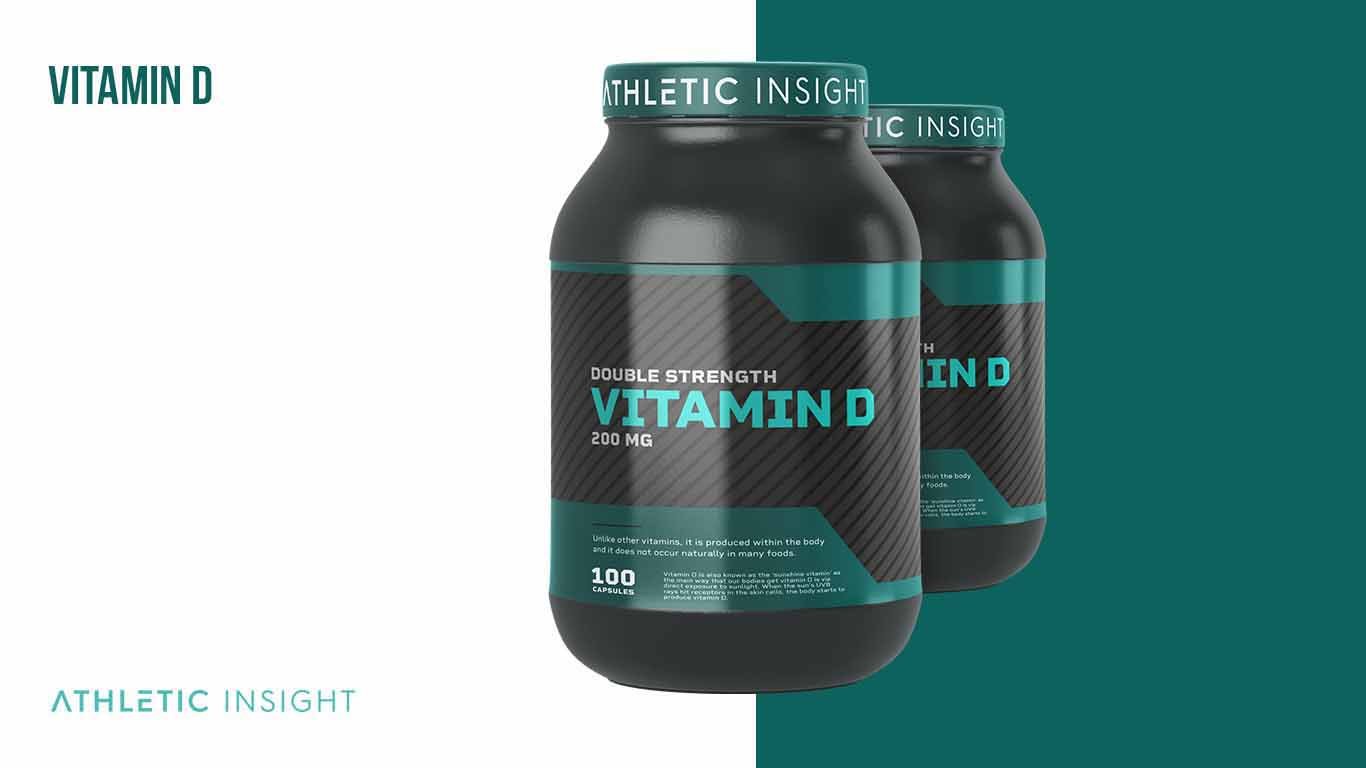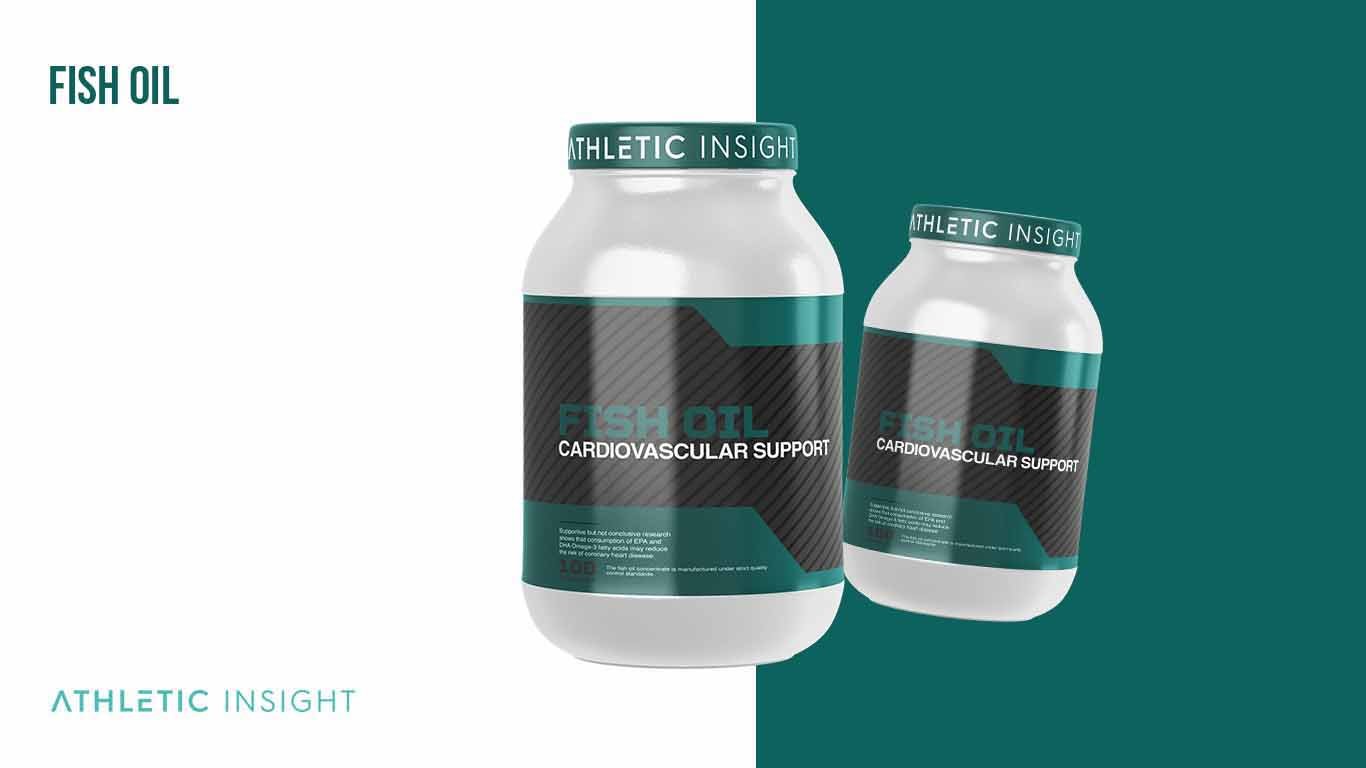While most people can get the nutrients they need through a balanced diet, athletes (especially endurance athletes) may need supplements to replenish their bodies after exercise. Because of these factors, taking vitamin and mineral supplements is important to enhance athletic performance.
The best athlete supplements should enhance performance, reduce recovery time, and compensate for nutrition lost during extended workouts. If you’re unsure what supplements fit these criteria, check out the list of supplements for athletes below.
Athletic Insight Top 3 Products
- Caffeine >>> Best Caffeine Product
- Ashwagandha >>> Best Ashwagandha
- Creatine >>> Best Creatine
The top three supplements for athletes are caffeine, ashwagandha, and creatine. You can find a complete list of the 16 best supplements for endurance athletes and details about these supplements below.
1. Caffeine
Caffeine is a popular supplement for many endurance athletes and is widely understood to be beneficial for performance. Studies have shown that it has a measurable impact on endurance running, allowing runners to continue running longer without experiencing fatigue.

Caffeine works for endurance athletes by delaying fatigue and providing motivation and energy at the beginning of the exercise. Caffeine induces an adrenaline rush, which results in a fight-or-flight response. This high-energy adrenaline rush can push endurance athletes to work for longer periods and start races with more energy.
Some research also suggests that caffeine inhibits the perception of pain, which may allow athletes to “push through” the hardest parts of their competition or training.
Research supporting caffeine’s effect on athletic performance is so robust that the NCAA has even banned it.
For the best results, caffeine should be consumed about 60 minutes before endurance exercises begin so that it has time to reach its highest blood concentrations.
Most research on caffeine uses the ratio of 3 to 6 mg of caffeine per 1 kilogram (roughly 2.2 pounds) of weight. This dosage means that an average-size male (197 lbs) would need to consume 270 mg of caffeine on the low end or nearly 3 cups of coffee.
For many people, large amounts of caffeine can produce unpleasant side effects, such as dizziness, nausea, and anxiety. If you’re considering using caffeine as an endurance supplement, use caution and understand your limits.
2. Ashwagandha
Ashwagandha (scientific name Withania somnifera) is a medicinal herb sometimes called the Indian Winter Cherry or Indian Ginseng. Ashwagandha has been shown to have many health benefits, many of which can help with endurance exercise, making it one of the best performance-enhancing supplements available.
The herb can increase concentration and energy levels while decreasing stress. While these impacts are substantial, the most significant thing that ashwagandha does for endurance athletes is increase maximum oxygen consumption, which keeps oxygen flowing to areas of the body where it’s needed most.
Research on ashwagandha supplementation suggests that users can feel the benefits by consuming 1,000 mg daily, with one half taken in the morning and the other half in the evening. Ashwagandha supplements are a relatively low-risk supplement. The most commonly reported side effects of ashwagandha are vomiting, diarrhea, and upset stomach.
3. Creatine
Creatine is an essential supplement for all athletes. It can help with short-term and long-term muscle growth, setting you up for future success. Creatine can also increase cell hydration, reduce muscle breakdown, and boost your endurance workload, meaning that you’ll be able to keep working longer.
Creatine can also increase muscle size and strength when used over time during training. It does this by improving cell signaling. When cells are damaged during an intense exercise period, they signal to the body to send nutrients their way so they can be repaired.
Creatine enhances this cell-signaling effect. This increased cell-signaling means a more efficient flow of nutrients to damaged muscle cells for better muscle growth over time.
Research done on creatine supports taking 20g per day, which is a fairly substantial amount. These creatine supplements are often bought in powder form to be added to other foods instead of taken in large-pill doses.
Creatine is a compound that occurs naturally throughout the body, and there are no proven detrimental side effects to taking it.
4. Vitamin D
Vitamin D is one of the most commonly recommended supplements for athletes. Research on vitamin D deficiency showed that 42% of American endurance runners have insufficient vitamin D levels.

Endurance athletes will especially benefit from vitamin D supplementation because it can reduce inflammation-causing cytokines. The reduction of inflammation can help speed up recovery between workouts.
When you have optimal vitamin D levels, most experts recommend taking 600 IU of vitamin D daily. If you have insufficient vitamin D levels, experts recommend taking 1000 IU daily until you reach higher levels, when you should then switch to 600 IU doses.
As vitamin D is naturally occurring in the human body, excess vitamin D is relatively uncommon. The most significant risk of taking too much vitamin D is the buildup of calcium in your blood, as vitamin D is responsible for calcium absorption.
5. Turmeric
Turmeric is a plant that is closely related to ginger. It has many reported health benefits, and many people have suggested that it can help with allergies, depression, digestive disorders, and the immune system.
For endurance athletes, Turmeric can be a lifesaver. It is an anti-inflammatory, which can help you stay working longer. It can also increase your body’s ability to use antioxidants, minimizing oxidative damage.
Some studies also say that Turmeric may be able to reduce the perceived feeling of pain, allowing endurance athletes to work through discomfort.
Turmeric is found in curry powder, though most people take Turmeric pills to take significant enough amounts to notice the effects.
Researchers looking into the positive effects of Turmeric most often use doses of 500-2,000 mg daily. Turmeric’s most common side effects are an upset stomach, including nausea, vomiting, and diarrhea.
6. Probiotics
Probiotics have a wealth of essential benefits for endurance athletes. They have been shown to reduce the recovery period needed between extreme training sessions, which can keep you practicing more often.
Probiotics can also reduce fatigue, improve performance and help you work longer. Additionally, probiotic supplements strengthen your gut barrier, which helps if you’re working in the heat.
Probiotic dosing is measured in colony-forming units. Most experts recommend adults take 10 to 25 billion colony-forming units per day.
Probiotics rarely have adverse side effects, and it’s difficult to take too many. While recommendations usually cap out at 25 billion colony-forming units, adults can safely take up to 100 billion colony-forming units daily.
7. Iron
One of the best endurance supplements is iron. Iron consumption impacts oxygen transport and metabolism, both of which are essential for endurance athletes.
Oxygen transport is the process through which your body delivers oxygen from your lungs to your muscles. Iron is essential to hemoglobin, a component of your blood responsible for oxygen transport through the body.
Endurance athletes are at higher risk for iron deficiencies, so it is crucial to monitor their iron intake and, in many cases, take iron supplements.
The appropriate dosage of iron depends on the person taking the supplement. Pregnant women, people suffering from anemia, and athletes are likely to need more supplemental iron in their diets than most people. In general, it is recommended that women take higher doses of iron supplements than men.
Taking too much iron can cause nausea and other stomach issues, such as vomiting and diarrhea.
8. Protein
Every time you exercise in any significant way, you will tear and damage your muscles. In re-building and growing these muscles, your body will use protein. Because endurance athletes break down muscles at increased rates, they will likely need more protein than most.
It is best to take protein 15 minutes to an hour before you work out. This short period will give your body time to prepare the nutrients before they are needed.
Most adults only need about 0.8 grams of protein per kilogram of weight per day. Athletes need more than double this amount, at 2.2 grams of protein per kilogram daily. This amount of protein can be challenging to achieve without supplements.
The most common side effects of protein supplements include stomach issues and headaches.
9. Electrolytes
Electrolytes are minerals that are usually dissolved in water. The five primary electrolytes are sodium, chloride, potassium, calcium, and magnesium. While most people can get the necessary electrolytes through water, electrolyte supplements can be important for athletes.
Athletes lose many electrolytes through sweat, and the loss of electrolytes can lead to fatigue and poor performance. Consistently replenishing electrolytes while sweating can prevent this fatigue, thereby increasing overall performance.
In addition to preventing exhaustion, electrolytes can help prevent heat stroke. Consuming extra sodium and water simultaneously (as you would by drinking an electrolyte drink) allows the body to direct more water towards sweat, keeping your body cool.
Most electrolyte supplements come in the form of sports drinks or other electrolyte-enhanced water drinks such as Gatorade or Powerade.
Electrolytes are quickly used and replenished in the body, so you can mainly consume sports drinks as needed. The side effects of consuming too many sports drinks and other electrolyte beverages are increased blood sugar and weight gain.
10. Fish Oil
Fish oil is one of the most common nutritional supplements for athletes. Fish oil is a fat extracted from fish tissue that is often administered as a supplement in pill form.

Fish oil is an easy way for many people, including athletes, to get the recommended dose of omega-3 fatty acids. Omega 3 fatty acids can help athletes by reducing inflammation and recovery time.
Omega 3 fatty acids in fish oils can help heal injuries and slight muscle tears resulting from exercise and increase fat oxidation. Increased fat oxidation can help prevent you from depleting carbohydrates during long-term training.
Fish oil also contains vitamins D and A, which have athletic benefits. While there are no specific recommendations, most people can easily consume 250-500 mg of fish oil daily. If you are an athlete and want to take more, research suggests taking as many as 5 grams per day is safe.
There are very few side effects of fish oil taken at recommended doses. Too much fish oil, however, can result in high blood sugar and stomach issues.
11. Antioxidants
Antioxidants have a multitude of benefits for endurance athletes. Endurance exercise often increases oxidative stress, damaging cells, proteins, and DNA. Antioxidants can act as a counter to this stress and prevent some of this damage.
While some antioxidants can provide significant benefits to athletes, some research suggests that too much daily intake of antioxidants can result in worsened athletic performance. Because of this, it is crucial to get the dosage of antioxidants correct.
Antioxidants are measured in units called oxygen radical absorbance capacity, or ORAC units. The majority of experts recommend 3000 to 5000 ORAC units per day.
Following a standard diet that contains five servings of fruits and vegetables per day will net you an average of 2500 ORAC units. This means that most people can safely take supplements of 500 ORAC units daily.
If you are on any medication, you must consult a doctor before adding antioxidant supplements to your routine because they may interact with certain drugs. Taking too many antioxidants may result in worsened performance and an increased risk of bleeding.
12. Coenzyme Q10
Coenzyme Q10 (CoQ10) is a type of antioxidant naturally produced by your body. It is one of the safer options for minimizing free radicals and reducing oxidative stress on the body.
Research on CoQ10 shows that it is much safer than other antioxidant supplements. One study showed that CoQ10 helps reduce oxidative stress in cells when taken in 1,200 mg doses for 60 days.
Studies have shown that CoQ10 may reduce fatigue during endurance performances and increase power during strenuous activity. These factors make CoQ10 one of the best supplements for endurance athletes.
Generally, a dose of 100 mg of CoQ10 will result in the desired effects, but it can safely be taken in doses up to 500 mg.
Because CoQ10 is naturally produced by the human body and excess is not stored, there are generally very few side effects of taking CoQ10.
13. Nitrates
Nitrates can have a significant impact on exercise tolerance and endurance. They do this by reducing the amount of oxygen needed for extensive exercise, though the methods for this process aren’t fully understood.
Studies have shown that nitrate can increase power output, distance traveled, and the length of time before an athlete becomes exhausted.
The amount of nitrate given to athletes for research was around 6-12 mmol per day, equating to 375- 750 mg per day.
The dosing for nitrates is complicated, however. Most research says that nitrate dosing needs to be proportional to athletic ability to see any benefits. That means high-performing athletes need to take more nitrate than low-performing athletes to see any effects.
The best way to figure out how much nitrate you should take, start with a small dose. You can increase your dose in small increments until you feel the effects.
The most common side effects of nitrate supplementation are stomach issues and heart palpitations. If you have a heart condition or are on medication, consult a doctor before adding a nitrate supplement to your diet.
14. B Vitamins
B vitamins are some of the best vitamins for athletes, as many high-intensity athletes have vitamin b deficiencies. There are various B vitamins available, most significantly B6 and B12.
Vitamin B6 can help athletes with energy production and stress resistance. B6 can help your body accept iron, essential for oxygen transport from your lungs to your muscles. It also helps your body burn carbohydrates more efficiently, which can help you maximize the food you consume.
Vitamin B12 has many health benefits of its own. For starters, it helps red blood cells form, which helps with muscle oxygenation. Vitamin B12 can also help you feel more energized, especially if you have a B12 deficiency, as many athletes do.
For most adults, the recommended dose of vitamin B6 is 1.3-2mg, while the recommended dose of vitamin B12 is 2.4 micrograms. The best multivitamin for athletes should contain both types of B vitamins.
B vitamin supplementation’s most common side effects include upset stomach, fatigue, and headache.
15. Beta-Alanine
Beta-alanine is a component of carnosine. Your body uses carnosine to mitigate acid in your muscles. Acid buildup results in a burning feeling when you exercise. By increasing the availability of the components of carnosine, it may be possible to reduce pain resulting from intense exercise.
Beta-alanine-containing supplements are some of the best supplements for performance. Beta-alanine increases exercise capacity, which can allow you to keep training longer. It can also help decrease fatigue, boost your immune system, and has anti-aging properties.
The recommended dose of Beta-Alanine is 2 to 5 grams per day. Most Beta-Alanine is considered safe and has few harmful side effects. It may cause tingling in the hands, face, and neck, though this tingling does not indicate harm.
16. Calcium
Calcium is crucial for bone health, especially for athletes. Athletes that perform intense training, such as endurance athletes, are more likely to experience a bone stress injury, making bone health even more important.
While calcium is an essential supplement for all athletes, it can be incredibly impactful in teenage athletes.
Teenage athletes should take serious precautions in protecting their bones and take calcium because it can prevent the loss of bone mass later in life. Losing bone mass at a young age can be devastating because recovering bone mass as an adult is extremely difficult.
When looking at vitamin supplements for teenage athletes, look for one that contains additional calcium. Teenagers need 1,300 mg of calcium daily and more if they exercise regularly.
Too much calcium, especially when taken with vitamin D, can cause calcification of the blood. Never take more than the recommended dose of calcium, and always consult a doctor before adding significant portions to your diet.
What Are Endurance Supplements for Athletes?
Endurance supplements for athletes are diet add-ons that compensate for the need for additional nutrients resulting from training and workouts. From creatine and protein to electrolytes and various vitamins.
Why Do Athletes Require Supplements?
Athletes require supplements because they use extra energy and micronutrients when exercising. For example, an endurance athlete may need protein supplementation to compensate for muscle damage that occurs when running. Alternatively, someone doing Brazilian Jiu Jitsu may require supplements for BJJ that will aid in recovery and/or weight management.
What Proportion of Athletes Use Supplements for Endurance?
About 85% of elite endurance athletes use supplements.
What Are The Benefits of Endurance Supplements?
Endurance supplements can stave off exhaustion and fatigue. They can also decrease recovery time after a workout and prevent injury from deficiencies.
How Long Should Endurance Athletes Use Supplements To Notice Results?
The amount of time it takes to notice the effects of supplements varies depending on the supplement. For example, an athlete that uses calcium supplements will likely not notice the impacts of their additional calcium until they are years older when their bones remain stronger than they otherwise would have.
On the other hand, an athlete that takes a caffeine supplement before a competition will notice the results immediately. Endurance athletes should feel the effects in three to six weeks for most multivitamins.
Do Supplements for Athletes Work?
Supplements work for athletes by providing them with the additional nutrients they need to balance out their extra exercise.
Do All Athletes Use Supplements?
Not all athletes use supplements, but a striking majority do. About 85% of professional, elite track and field athletes take some kind of supplement.
Does Weightlifting Help With Endurance?
Yes, weightlifting helps with endurance. This is because weightlifting is one of the best exercises that can strengthen muscles, tendons, and ligaments and can increase bone density.



